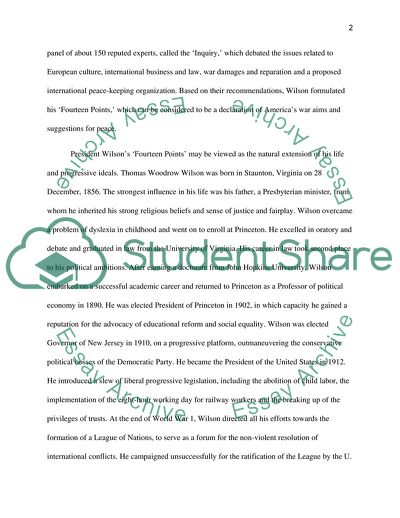Cite this document
(Woodrow Wilson: the Fourteen Points Case Study Example | Topics and Well Written Essays - 1250 words, n.d.)
Woodrow Wilson: the Fourteen Points Case Study Example | Topics and Well Written Essays - 1250 words. https://studentshare.org/politics/1713178-woodrow-wilson-speech-on-the-fourteen-points
Woodrow Wilson: the Fourteen Points Case Study Example | Topics and Well Written Essays - 1250 words. https://studentshare.org/politics/1713178-woodrow-wilson-speech-on-the-fourteen-points
(Woodrow Wilson: The Fourteen Points Case Study Example | Topics and Well Written Essays - 1250 Words)
Woodrow Wilson: The Fourteen Points Case Study Example | Topics and Well Written Essays - 1250 Words. https://studentshare.org/politics/1713178-woodrow-wilson-speech-on-the-fourteen-points.
Woodrow Wilson: The Fourteen Points Case Study Example | Topics and Well Written Essays - 1250 Words. https://studentshare.org/politics/1713178-woodrow-wilson-speech-on-the-fourteen-points.
“Woodrow Wilson: The Fourteen Points Case Study Example | Topics and Well Written Essays - 1250 Words”. https://studentshare.org/politics/1713178-woodrow-wilson-speech-on-the-fourteen-points.


